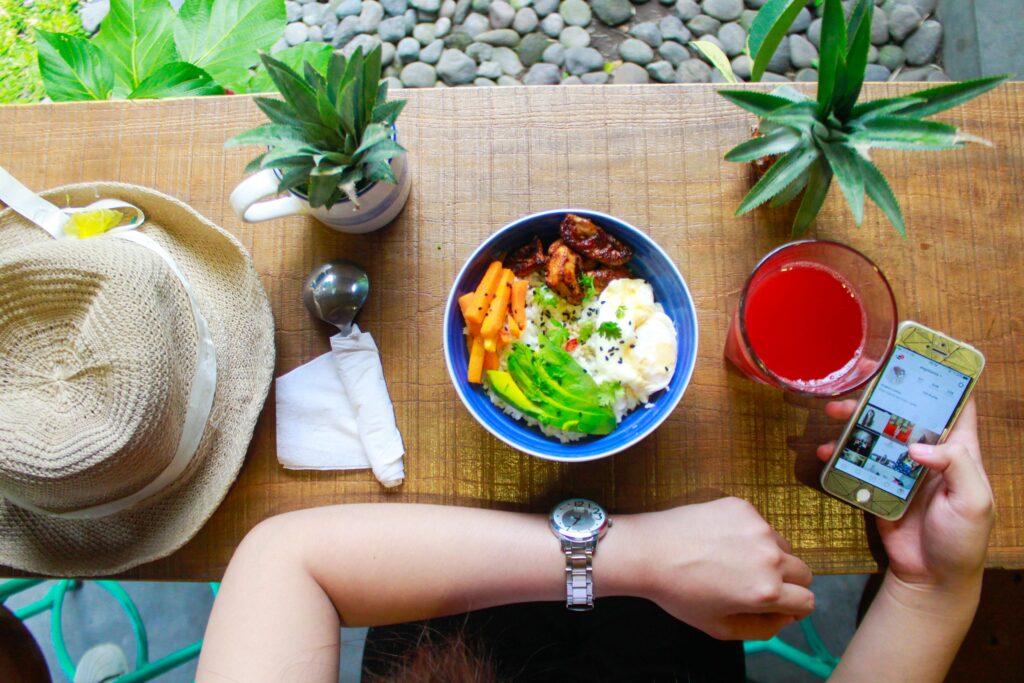
Nourishing Your Body and Mind – A Guide to Developing a Healthy Relationship with Food
Food is more than just sustenance; it’s an integral part of our lives, shaping our health, emotions, and even social interactions. Yet, in a world bombarded with fad diets, conflicting nutrition advice, and unrealistic body standards, establishing a healthy relationship with food can be challenging. However, with mindful practices and self-compassion, it’s possible to cultivate a nourishing connection with food that promotes overall well-being.
Understanding Your Relationship with Food: Before delving into strategies for fostering a healthy relationship with food, it’s crucial to assess your current relationship with it. Reflect on your eating habits, emotions surrounding food, and any underlying beliefs or triggers. Are you prone to emotional eating? Do you experience guilt or shame after indulging in certain foods? Identifying these patterns can provide valuable insights into areas that may need attention and healing.
Embrace Intuitive Eating: Intuitive eating is a holistic approach that encourages listening to your body’s hunger and fullness cues, rather than adhering to external rules or restrictions. It involves honoring your cravings, enjoying a variety of foods without judgment, and eating when hungry while stopping when satisfied. By reconnecting with your body’s innate wisdom, you can develop a more balanced and fulfilling relationship with food.
Practice Mindful Eating: Mindful eating involves paying full attention to the sensory experience of eating, including the taste, texture, and aroma of food. Instead of mindlessly consuming meals on autopilot, take the time to savor each bite, chew slowly, and appreciate the nourishment it provides. This mindful approach not only enhances the enjoyment of food but also fosters a deeper appreciation for the eating experience.
Cultivate Self-Compassion: Developing a healthy relationship with food requires kindness and compassion towards yourself. Beating yourself up over food choices or body image only perpetuates negative cycles. Instead, practice self-compassion by offering yourself understanding and forgiveness, especially during challenging moments. Remember that you are worthy of nourishment and respect, regardless of what you eat or how you look.
Focus on Nutrient-Dense Foods: While all foods can fit into a balanced diet, prioritizing nutrient-dense options can support overall health and well-being. Incorporate plenty of fruits, vegetables, whole grains, lean proteins, and healthy fats into your meals to provide essential nutrients and energy. Aim for variety and moderation, rather than strict dietary rules or deprivation.
Challenge Diet Culture: In a society obsessed with dieting and thinness, it’s essential to challenge harmful diet culture narratives. Recognize that health comes in all shapes and sizes, and weight is not the sole indicator of well-being. Reject unrealistic beauty standards and instead celebrate body diversity and self-acceptance. Surround yourself with positive influences that promote body positivity and inclusive attitudes towards food and health.
Seek Support When Needed: Developing a healthy relationship with food is a journey that may require support along the way. Don’t hesitate to reach out to friends, family, or a professional, such as a therapist or registered dietitian, for guidance and encouragement. Surround yourself with individuals who uplift and empower you in your quest for holistic wellness.
Conclusion: Cultivating a healthy relationship with food is a multifaceted process that requires patience, self-awareness, and compassion. By embracing intuitive eating, practicing mindfulness, and challenging diet culture, you can nourish your body and mind in a way that promotes long-term health and happiness. Remember that every meal is an opportunity to nourish yourself with love and kindness, setting the foundation for a fulfilling relationship with food for years to come.
Thankyou!

